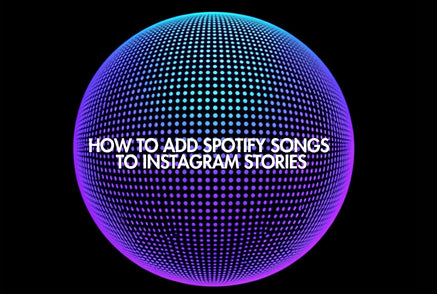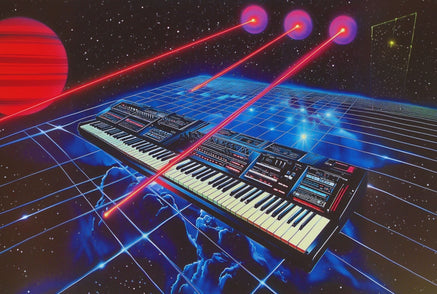A Review on Kuvo: Royalty Tracking Software for Musicians
When your music is streamed on digital platforms like Apple Music or Spotify, you receive royalties for each stream. The amount of funds earned depends on how much you earned. People often ask how much you can earn on Spotify. Still, some musicians do not realize that they receive less than they should, and it's not their fault. They just don't understand the specifics of how royalties are generated.
In fact, DJs don’t have to ask permission to play tracks at their events. It’s the responsibility of the venues to get a blanket license and a right to play the music. Only this will make the music streaming legal.
The key to that problem is a royalty tracking software called Kuvo. It allows you to calculate your earnings and receive the deserved income. In this article, we will review Kuvo to help you understand how it works and how it makes a difference in the whole music ecosystem. You’ll find out how the software works, who operates it, and what is the purpose of using it.
What is Kuvo?
This is the first question to be answered. Kuvo is a service created in partnership between DJ Monitor and AlphaTheta. The initial purpose of this program was to identify tracks on club events and receive valuable music insights. Two key technologies come together: direct metadata capture technology and music recognition technology. The first one allows you to track data about artists and their tracks, while the other one compares the played list with songs from the database.
Overall, Kuvo has the following benefits:
- Ability to identify and track music played in venues and at electronic music festivals.
- The clubs don’t have to pay for Kuvo boxes for their DJs.
- There are no additional fees for using the Kuvo box, so clubs don’t pay anything.
- Fans can use Kuvo for personal purposes to find out what music is played in the clubs. The only thing to do is to download the app.
The main idea of Kuvo is to allow all musicians to get the deserved income. This software is mostly for electronic musicians, allowing them to track the performance of their music played worldwide in clubs, bars, events, etc. Moreover, Kuvo users receive music insights and guarantee fair payments for the artists. The tracked data is never shared in public, as said on the official website.
The app also gives DJs the ability to share the music they love. One of the options allows them to add messages and links to streamed songs, creating new abilities for interaction and better communication.
Boris Brejcha, a German DJ, expressed his full support for the application and its creators. "... I play only my tracks at shows, but I know my music is also played by many other DJs in clubs all over the world, so I welcome this progress towards automated reporting for royalty purposes.”
All tracks available in the Kuvo database are gathered in a networked black box, and the number of tracks is getting bigger, and it receives more data from various sources. When musicians create accounts and pass their tracks through Rekordbox software 3.0 or higher (made by Pioneer), the data will be uploaded to the black box. With performance data analysis and high-quality tracking, artists will receive royalties as they should. Everything sounds quite simple, but in fact, it's not.
Where Is the Pitfall at Kuvo?
The first problem with Kuvo is that we don't know how the database is formed. There's no confirmation that the black box is anonymized, and nobody is tracking your data. From what we know right now, there's no subpoena protection with KUVO, so nothing can stop a governmental agency, a major label, or a PRO (performing rights organization) from requesting your data.
The argument for choosing Kuvo is that it cooperates with the AFEM, which stands for the Association For Electronic Music. This organization consists of representatives from various labels and management groups who demonstrate constant presence at industry events (conferences, public talks, etc.). One of the main interests of AFEM is to protect the income of musicians, labels, publishers, and others related to music creation. Still, your interests will be protected only if you are signed to a major, and not all artists belong to this category. So, is there a reason to use Kuvo?
Another questionable point about Kuvo is that the benefits of using this software are not as obvious as we think. According to the latest updates of AFEM, only three of 10 songs are properly registered to receive and process performance royalties. From here, we have another question: if the company claimed to protect your rights can pay for only 30% of what you actually deserve, is it reasonable to trust this organization? Imagine you'll try to play a pirate game on a console made for original copies only. The console will probably crush, so such play is not reasonable. Now imagine playing an unlicensed track. It may not be a big deal, especially if it's dance music in the club. However, today most recordings of dance music are controlled by majors, and each play can be tracked.
Last but not least is access to Kuvo's tools. To do this, you have to create an account, process the music through the Rekordbox filter, and select whether you want to display the actual track name or not. Also, make sure your box is connected to the network, so they don't need to focus on DJ while in the club.
The Kuvo technology is actively used by DJs in the clubs to ensure the owners of the songs receive compensation according to the current licenses. Still, there are some controversial moments, like access to personal data and protection of the information DJs provide about themselves. Moreover, clubs are implementing this innovation voluntarily, so there’s no real option to track the amount of clubs and venues that use it. Anyway, the software is up and running, and the reaction from DJs signals that there’s still work to do.
How does Kuvo work?
How to start using Kuvo?
Is Kuvo a paid service?
Is Kuvo effective for independent musicians?
Is Rekordbox connected to Spotify?





















Omar Viteri
It’s about time something like this existed. Still, I’m curious how effective the music recognition is in loud, busy venues. Would love a follow-up with user feedback.
It’s about time something like this existed. Still, I’m curious how effective the music recognition is in loud, busy venues. Would love a follow-up with user feedback.
Hannah Kim
KUVO is a name I’ve heard from a few DJ friends, but I never fully understood its purpose until reading this. The breakdown in this post is super helpful. Definitely giving it a try after my next gig!
KUVO is a name I’ve heard from a few DJ friends, but I never fully understood its purpose until reading this. The breakdown in this post is super helpful. Definitely giving it a try after my next gig!